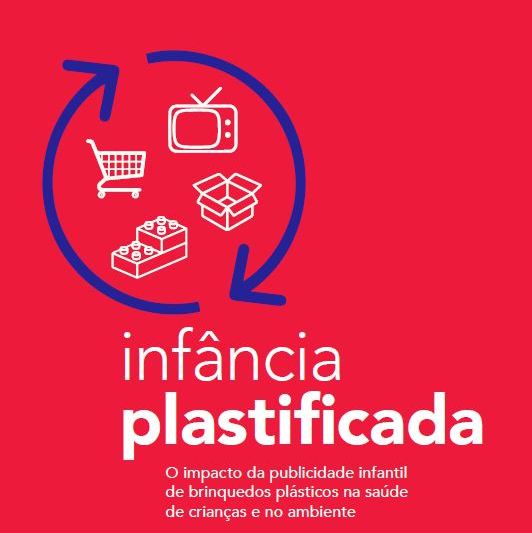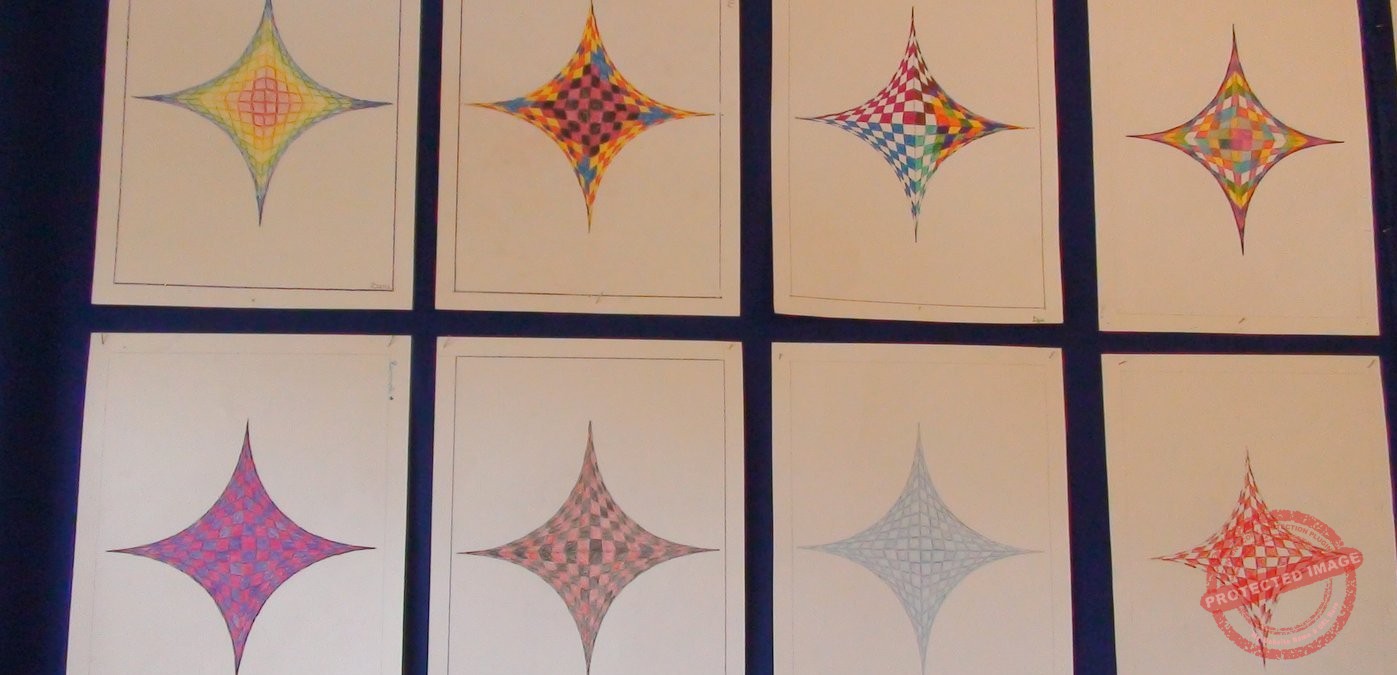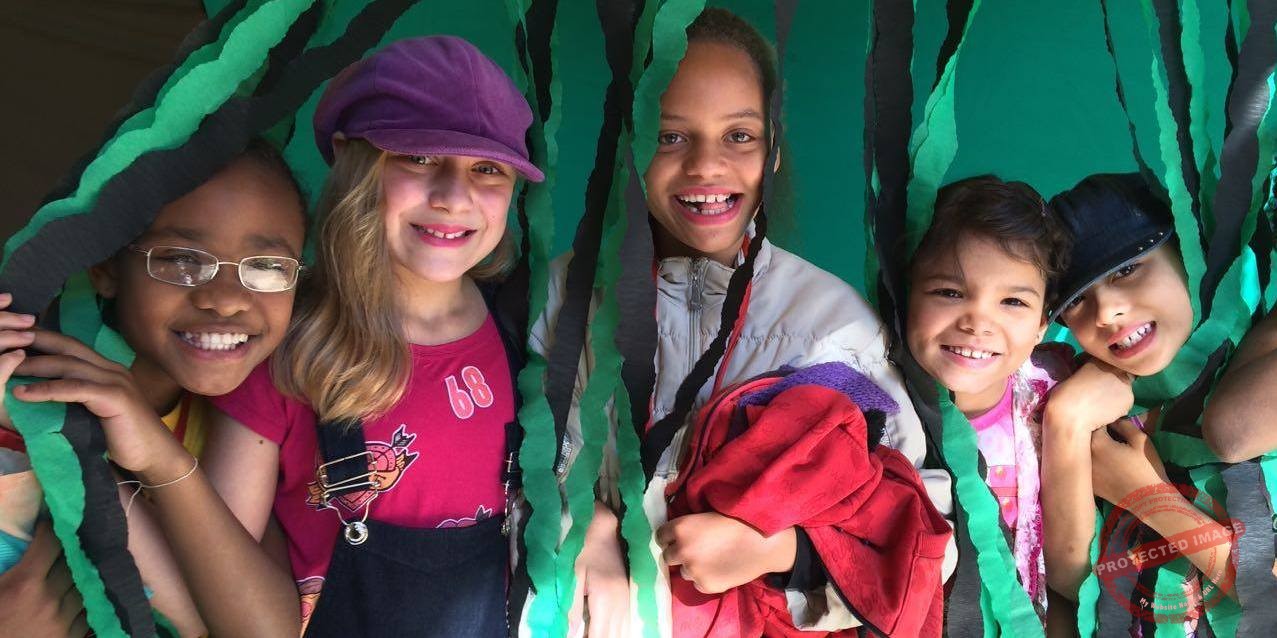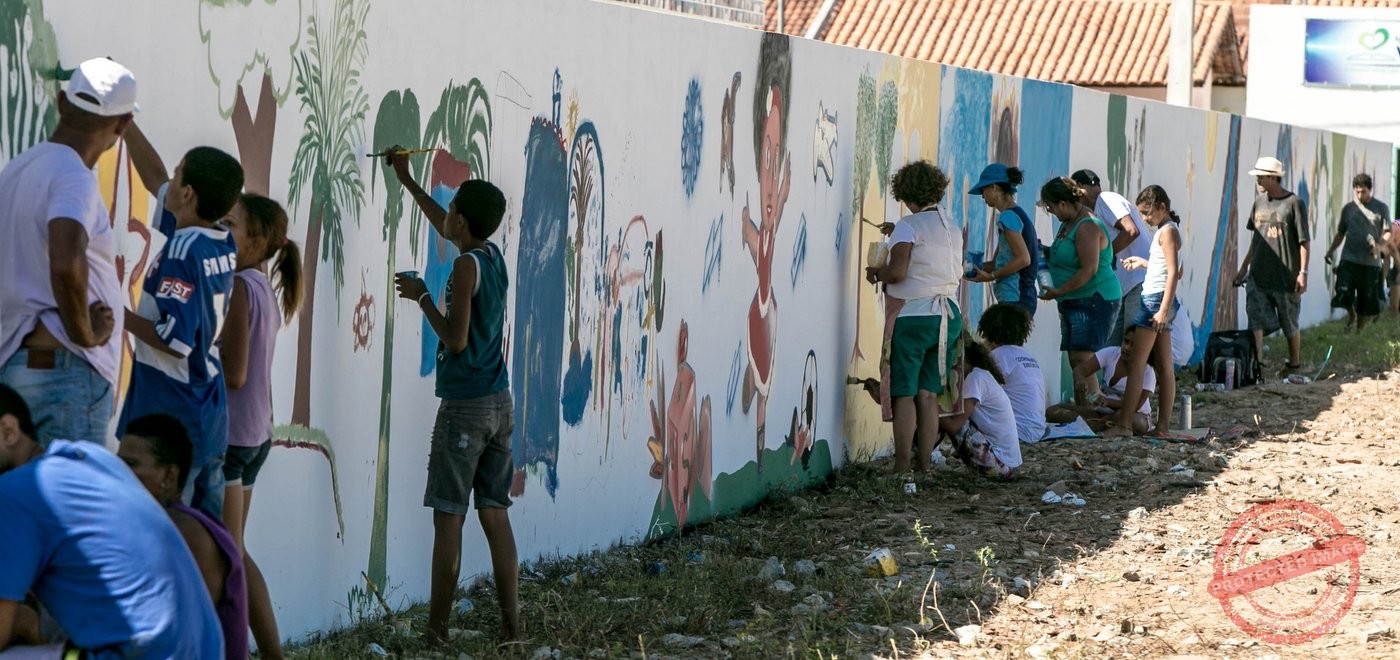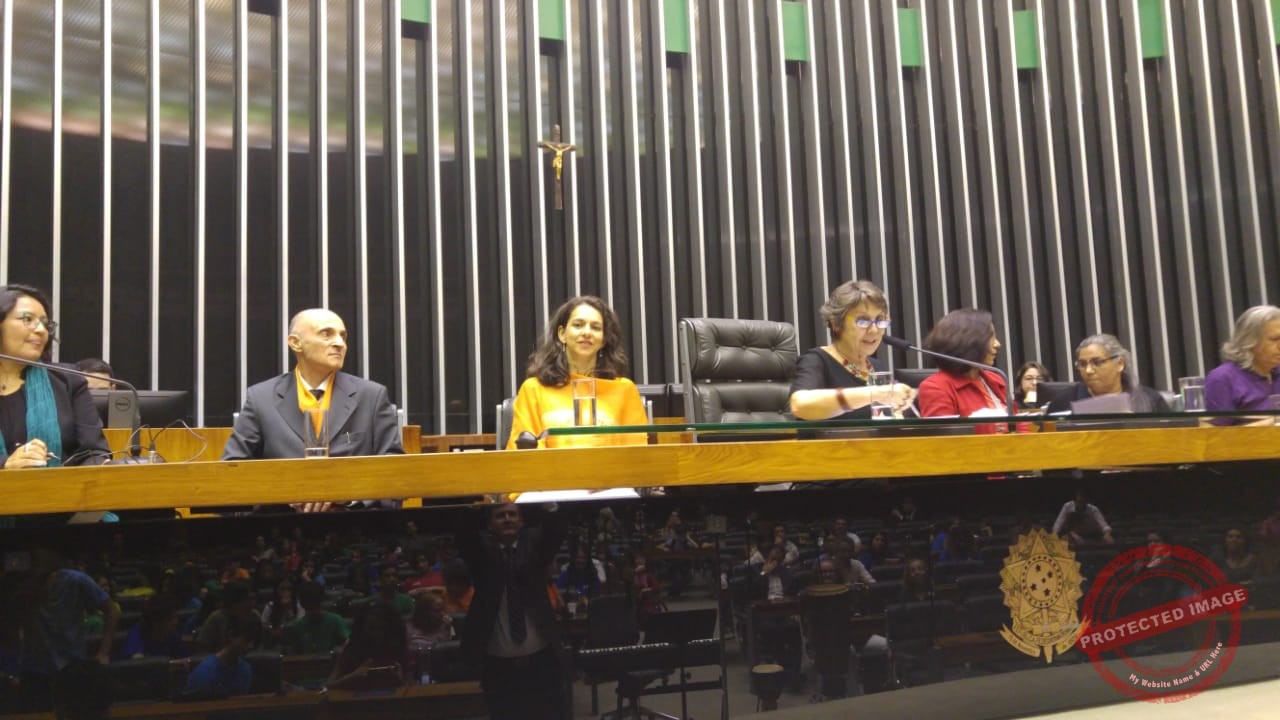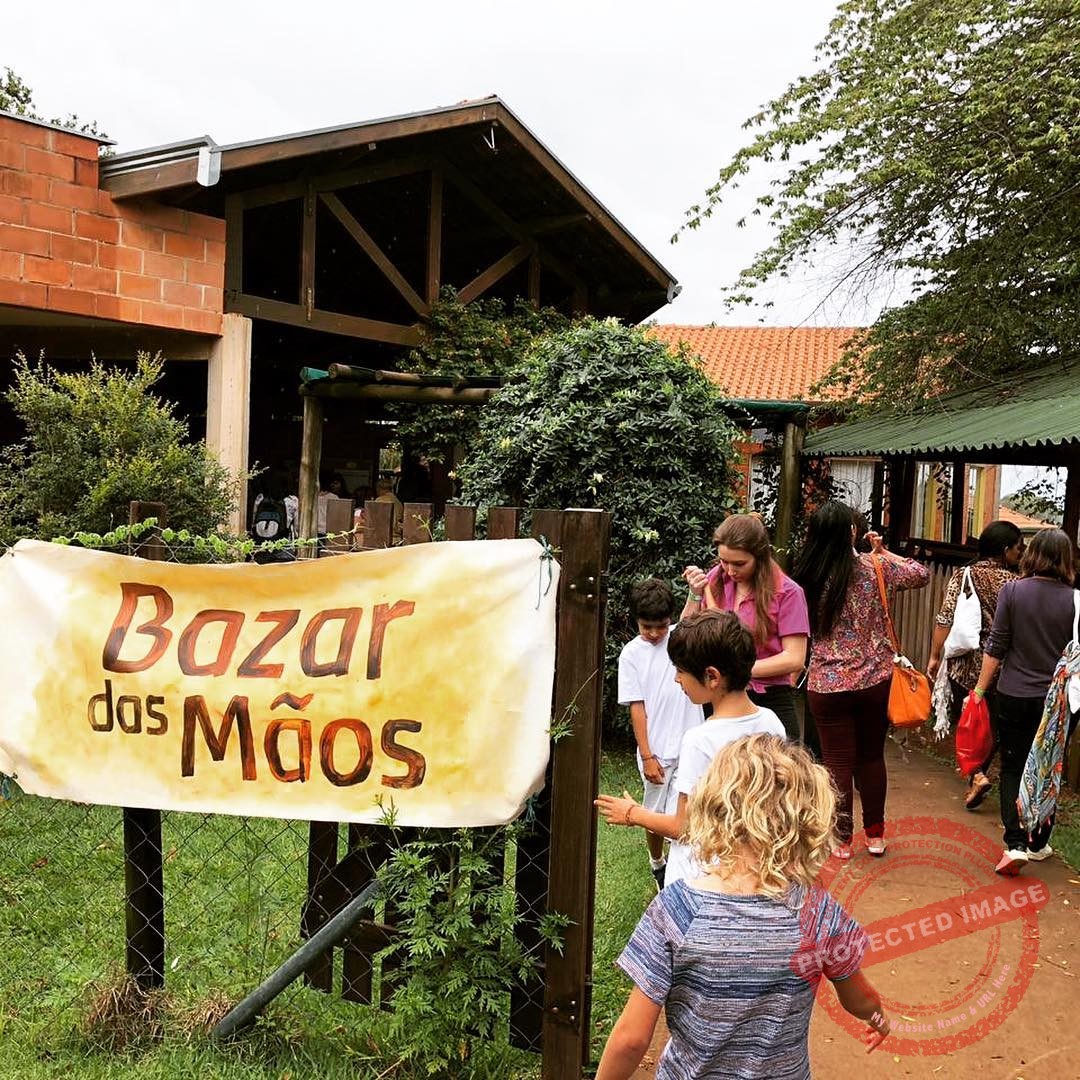[print-me target="body"]
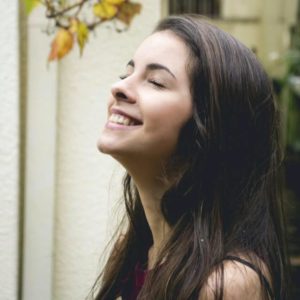 LUÍSA MÜLLER NEVES joined the pioneer class of Escola Waldorf Querência, (in 2005, with teacher Ana Beatriz Weber) in Porto Alegre RS, and was the first student to complete elementary school (up to the 9th grade, completed in 2013). In high school, she studied at Colégio João XXIII and is currently enrolled to study Psychology at the Federal University of Health Sciences in Porto Alegre.
LUÍSA MÜLLER NEVES joined the pioneer class of Escola Waldorf Querência, (in 2005, with teacher Ana Beatriz Weber) in Porto Alegre RS, and was the first student to complete elementary school (up to the 9th grade, completed in 2013). In high school, she studied at Colégio João XXIII and is currently enrolled to study Psychology at the Federal University of Health Sciences in Porto Alegre.
***
I think one of the questions I get asked the most is: what is the difference between a Waldorf school and a “traditional” one?
Well, we can start by talking about the objectives of schools: in a traditional institution, the main goal is to train a student capable of passing the entrance exam, that is, capable of memorizing names, dates and formulas. In a Waldorf school, in addition to teaching names, dates and formulas, teachers are concerned with forming an individual with their own thoughts, with a critical sense, with an awareness of their place in the world, the importance of education, ethics, respect for others and with a powerful voice inside you.
Then we can talk about the teaching method: what sets a Waldorf school apart is the way the teachers connect with the students, as their friends, confidants and helpers, basically like family. The fact that a teacher accompanies his students from the first year to the end of elementary school provides a unique bond, and we can see that both the students and the teacher grow as individuals during this time.
In addition, the classes are filled with stories, songs, poetry and plays, which make the studies much more concrete, more fun and generate a curiosity to learn more and more. Until high school all the subjects seemed to make sense in my head because they were taught in a way that we didn't have to memorize, it was simply to learn. The stories, drawings and experiences made the contents simpler and easier to understand and not distant as in traditional teaching, where each student is seen as a series of numbers and grades, that is, Luísa Müller Neves meant 8 in arts, 7.5 in math and 6 in history. In a Waldorf school, this same Luísa meant a girl who liked music, drawing, didn't really like to read, and was often asked for it by the teacher, but who had her qualities and flaws that were taken into account: every effort is taken into account. Summarizing an entire year in a series of notes is superficial, it's limiting all a child's knowledge to one day of testing, it's like summarizing the entire sea in a drop.
I think getting a completely blank notebook at the beginning of the year and seeing it turn into pages of stories, paintings, materials and exercises is like seeing a caterpillar turn into a butterfly, because that's what happens in a Waldorf school: the children who enter still so pure and naive, they come out as mature teenagers, responsible and prepared to face the world.
Another frequent question is: how was the transition at the end of elementary school to a “traditional” school? To situate you, let's make a small comparison: I was leaving a school where I had 2 classmates and going to one where I would have 30, in addition, the number of all students at Querência did not exceed the number of students in 3 classes of João XXIII . But, no matter how big the difference, (due to the number of colleagues, the size of the school, the amount of tests and the teaching method), I adapted incredibly well, I was even surprised, to be honest. I think it took me a quarter to get completely used to the partial exams, to the quarterly exams, to understand what the exams required and how they did it, but once I got the hang of it, it became easy.
Well, after high school comes the dreaded entrance exam, a test that decides a big part of your future. In 2017, I entered the prep course and studied to pass the psychology course, both at UFRGS (Federal University of Rio Grande do Sul) and UFCSPA (Federal University of Health Sciences of Porto Alegre, also known as the Foundation). Studying for the entrance exam, especially for the one at UFRGS, was like going against what I believed: I needed to memorize formulas, names and dates and I had no other option. So my way out was to study for ENEM and pass the Foundation through SISU. The ENEM test is much more based on text interpretation and logic than on “memorize”. What matters is knowing how to think and put yourself in “problem situations”, which I learned to do at Waldorf school. Finding the ENEM was like finding my salvation and while I write this text I am waiting for the SISU registrations and hoping that it will be approved. Just to be clear, I'm not saying that I couldn't have studied at UFRGS and passed, but it was a choice I made, not to go against my principles, and I don't regret it.
Finally, I would like to finish this text saying what is the differential of the Waldorf school in my education, how I think it affected my studies and my life. I certainly cannot summarize all my experiences in just learning in terms of subjects. The Querência School made me grow as a person and taught me much more than math and Portuguese, it gave me a basis for me to mature and find myself, it gave me the opportunity to speak and be heard, to be myself and to be respected how I am. Anyway, I just have to thank this school, the teachers and colleagues I had and my parents, who made a decision 13 years ago that made me the person I am today. I always carry a little piece of Querência in my heart and I am very happy to see her growing. I may have left the Waldorf Querência School, but it didn't leave me and this is the differential in my education.
After rereading this text a few times, I thought it was important to emphasize that the Waldorf School, despite having a great role in the educational formation of a child, cannot work alone, that is, it is essential that parents get involved with the creation and learning of children. your son. It is very important to take what was learned at school to the family environment so that the child has cohesion in their education and so that there is no conflict between the values taught by teachers and parents. The Waldorf Schools proposal includes the inclusion of family members in curricular activities and this involvement only brings benefits to both students and parents and teachers. Choosing to place your child in a Waldorf School is not an easy one, but this decision will affect the rest of his life and yours as well, and as Rudolf Steiner said, "I can't expect anything to change out there in social life if I don't myself. set me in motion”.
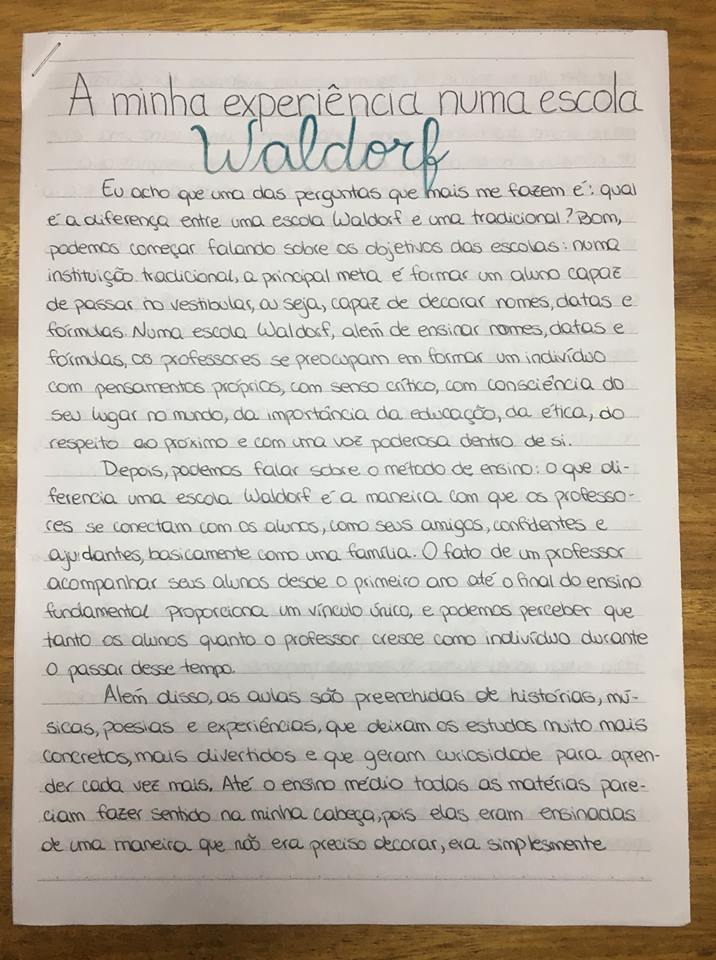
credits
This text was written spontaneously by Luísa Müller Neves, in January 2018, with the aim of reporting her personal experience to families interested in knowing the Waldorf School. It was originally published by Escola Waldorf Querência, in Porto Alegre RS, in commemoration of the 13th anniversary of the school's foundation.
Featured image: Students from Escola Waldorf Querência doing a circus presentation – Porto Alegre RS
***


